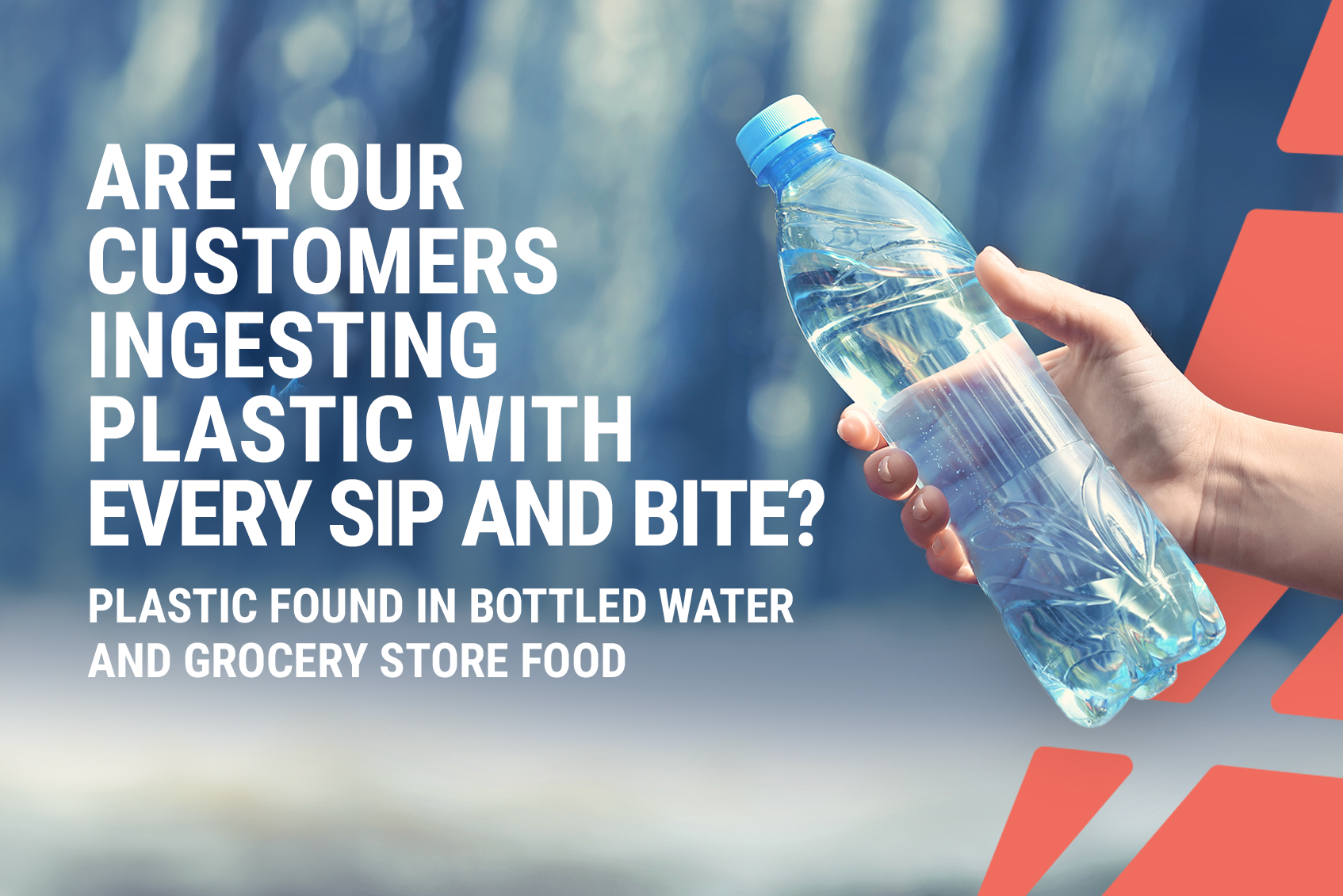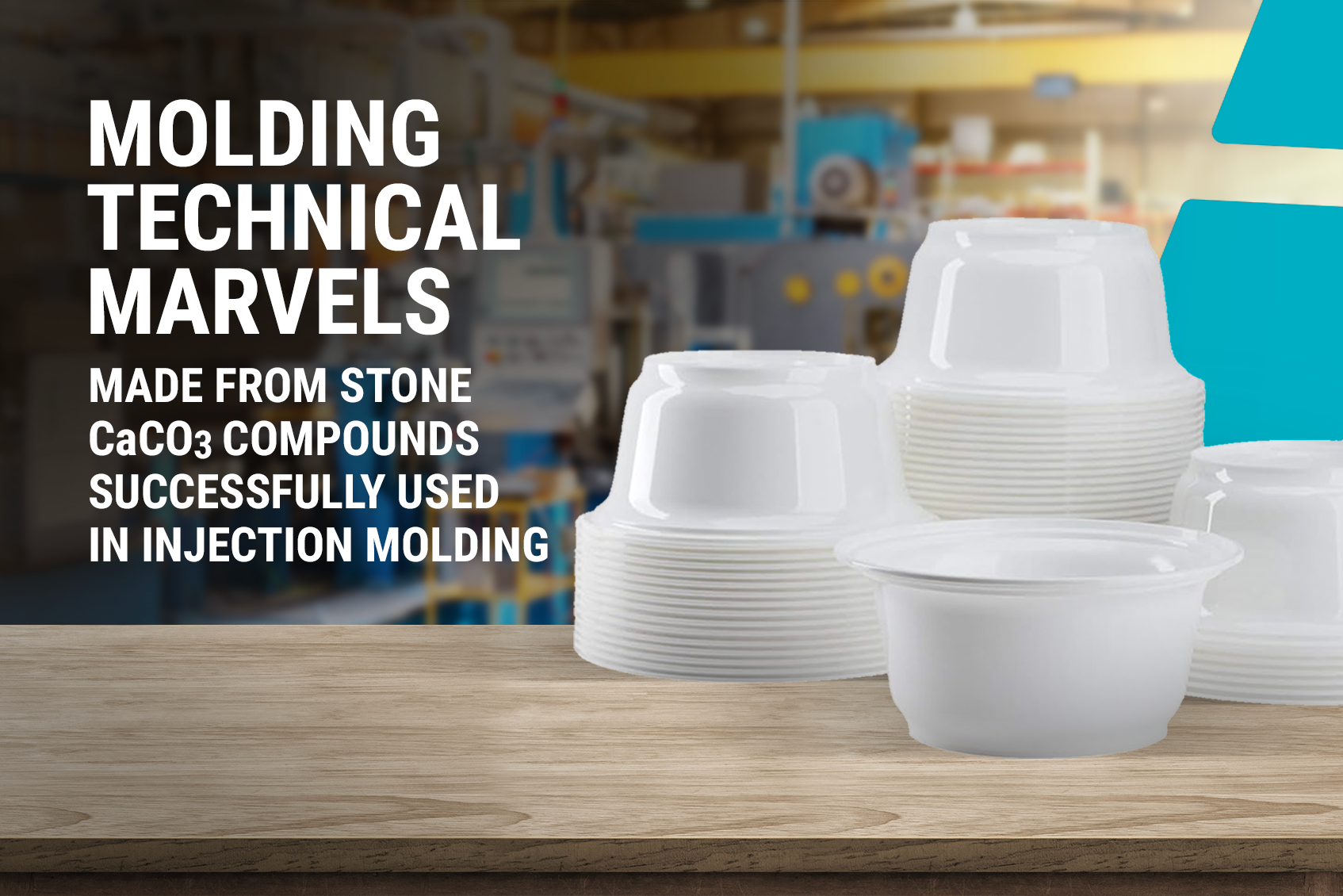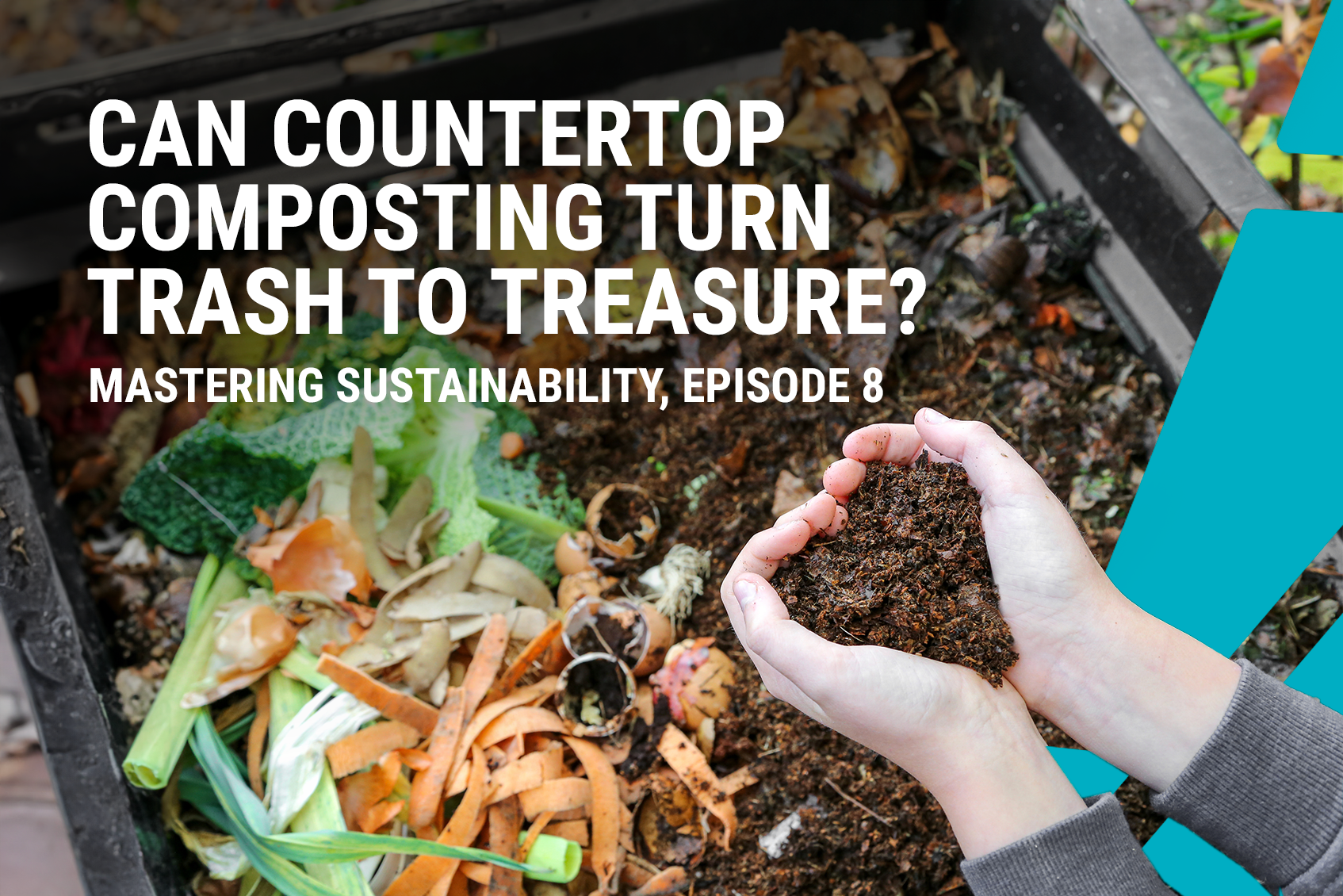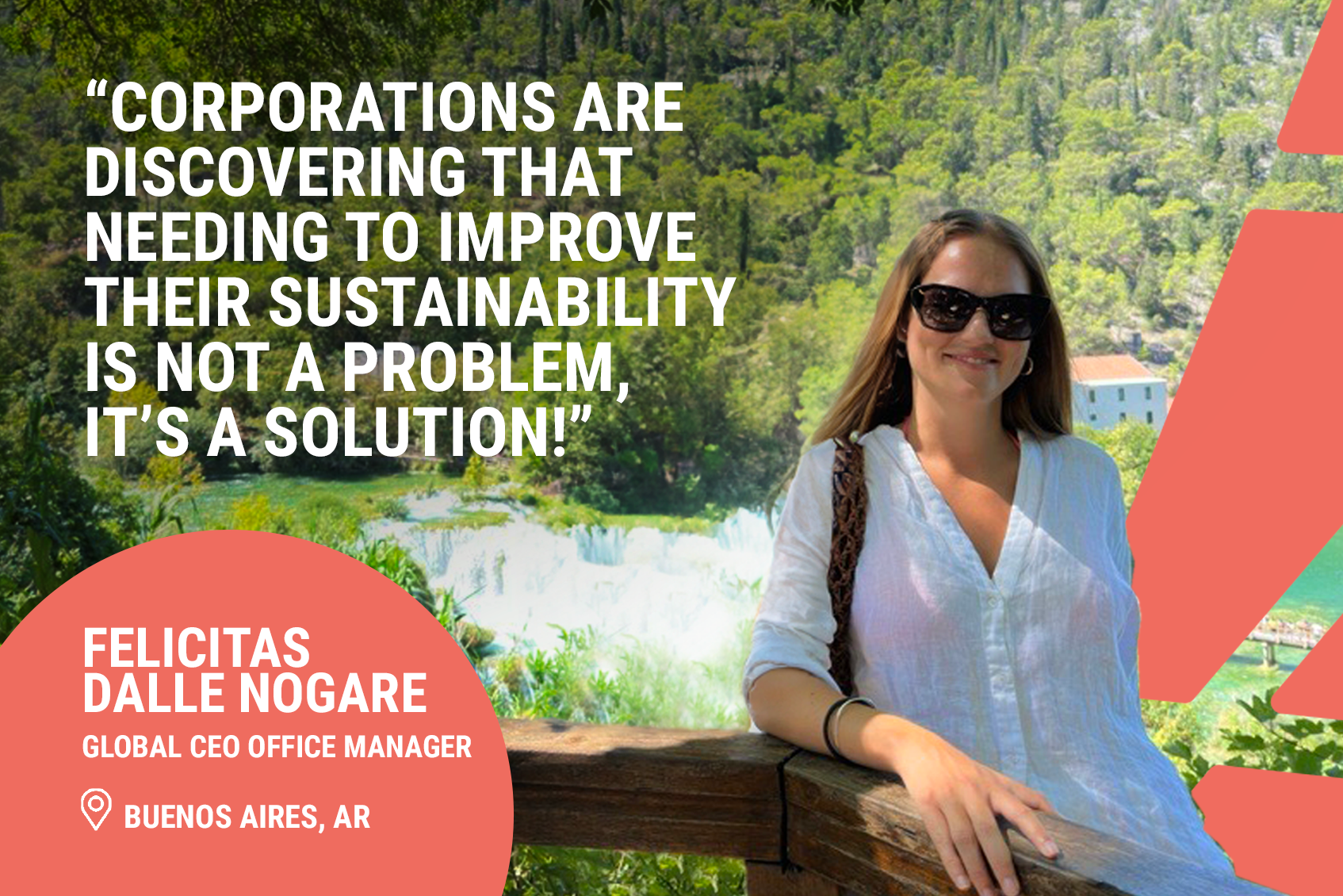Okeanos was named one of Fast Company’s 2022 World Changing Ideas!
+|
|
||
|

We know plastic is pervasive. It pollutes beaches, soil and even the air we breathe. But are we consuming more of it than we think without knowing it?
Unfortunately, yes. A new study by the Proceedings of the National Academy of Sciences (PNAS) found that the average water bottle contains nearly a quarter million fragments of nano plastics – up to 100 times more than found in previous studies! Nano plastics, particles a thousand times smaller than their commonly maligned counter part microplastics, which measure smaller than 0.5mm in diameter (roughly equivalent to the size of a grain of rice).
That’s not all. According to Consumer Reports, the presence of phthalates, chemicals sometimes called “plasticizers,” which are used to make plastics last longer, were found in 84 out of 85 food products recently tested from supermarkets and restaurants ranging from popular cereals to chicken from global fast-food chains. While heath repercussions are still being studied, the presence of phthalates has been linked to an increased risk of birth defects, cancer, diabetes, reproductive and developmental disorders.
Based on these unsettling reports, it’s easy to understand how the average human consumes about a credit card’s worth of plastic a week. Okeanos focuses on reducing the amount of plastic flowing into the environment through source reduction. This means we turn down the plastic tap at the point of manufacture, ensuring products Made From Stone are made with less plastic from the start.
Are there nano plastics and plasticizers making their way into your brands products? Learn more about how we can reduce the plastic content of your products today.

Manufacturers will tell you it’s not possible– and then we’ll prove them wrong. Did you know injection molded products can be Made From Stone?
The industry-held belief is that calcium carbonate could not be used in injection molding at even moderate rates due to perceived machine wear and tear. In a recent customer trial, we were given the opportunity to prove that not only could we do it at moderate rates, but we could do it at high rates. injection molded bowl. The resulting product had long resisted using CaCO3 in their products Then Okeanos stepped in.
Not only were we able to reduce the overall plastic content of this product by as much as 30%, but no manufacturing complications arose from the use of Made From Stone compounds. This simple switch to a more sustainable feedstock also resulted in a meaningful unit cost reduction for the client.
Lastly, a comparative Life Cycle Analysis report conducted for this project concluded that the introduction of Made From Stone in place of polypropylene (PP) resulted in a 20% decrease in the bowl’s overall CO2 footprint as compared to the puck’s 100% plastic predecessor.
Connect with our technical team to learn about processing Made From Stone compounds.
If you subscribed to this newsletter, you’re probably concerned about climate change; specifically, the emissions impacts that the things we make have on our environment. But not all emissions are created equal…
Let’s break down the way GHG emissions are categorized:
Scope 1 Emissions: These are “direct” emissions, resulting from the on-site activities, processes, or equipment at the company. Think boilers and furnaces onsite, or gas in company cars.
Scope 2 Emissions: These are “indirect” emissions associated with purchases the company makes to facilitate daily operations. Think electricity, steam, or heat, which is supplied to the organization by an outside company.
Scope 3 Emissions: These account for the other activities that happen within the company’s value chain and are the hardest to quantify. Scope 3 includes emissions that are both “upstream” like production of raw materials, transportation of goods, and employee commuting, as well as “downstream” impacts like the product’s end-of-life, and waste management. These account for the biggest share of any company’s emissions.
Did you know that Okeanos can help you reduce your company’s Scope 3 emissions?

What if the food that feeds us could also feed our soil?
On Episode 8 of Mastering Sustainability, we’re sitting down with Jeremy Lang, founder of Lomi, the world’s first Smart Waste™ kitchen composter to talk about all things composting. In this conversation, we dig into the dirty side of waste management infrastructure, new technologies that are changing the game, and the opportunity to decentralize a decades-long industry.

|
This month we’re celebrating Felicitas Dalle Nogare, our Global Office Manager to the CEO. “Feli,” as we call her, keeps the wheels turning at Okeanos. Read on to learn more about how Feli’s draws upon her global upbringing in her role. You have immersed yourself in a global work environment with diverse cultures. What do you feel you bring to your team, especially from your cultural background, that contributes to achieving objectives? Throughout my life I’ve been fortunate to have lived and worked in vastly different countries including South Africa, India, Italy, and of course, my homeland of Argentina. I believe that there is immense value in combining different cultures and leveraging the strengths of a global team toward a common goal. This has allowed me to approach every meeting and project through the lens of open communication, adaptability and inclusivity. It is enriching to combine the best knowledge, practices, and perspectives of the people involved. What inspired you to pursue a career in sustainability? Intrigue about the technology drew me to Okeanos, and after almost a year with the company, the intrigue for our upcoming projects is what fuels me. The company’s mission is inspiring and my teammates the commitment of my teammates to make a difference motivates me to work harder. Okeanos is my first experience in the sustainability industry. In my role, I get to interact with the teams along each step of the process; watching an idea emerge from the great minds of our innovation team, and seeing it grow into fruition through other departments before hitting the market is an incredible experience. What are some of the key lessons you’ve learned in your career about the intersection of business and sustainability? First and foremost, I’ve noticed that sustainability is now a priority not just in sustainable businesses, but in all businesses. We’re now hearing words like CO2 emissions and plastic pollution in boardrooms all around the world. I’ve learned that companies need to evolve alongside technology to become more conscious about their impact on the planet. There is still a lot of change that needs to happen, but it’s clear that corporations are discovering that improving their sustainability is not a problem, it’s a solution! Oftentimes, these positive changes can even have positive trickle-down effects, making operations more efficient and reducing costs. To be able to be part of a business that provides that solution is very inspiring. Can you share a “Eureka!” moment when you realized the potential of Made From Stone’s technology to drive positive change? I´ve had the opportunity to meet with clients from all over the world, and it is always very rewarding to see the look on the teams’ faces when we introduce them to our product and technology. Last month I was able to visit our Brazilian operations, and I was galvanized by the feeling that it didn’t feel like we were selling a product, but instead, we were working with fellow citizens of the world towards the common goal of improving their materials and reducing their impact on our planet. To be part of that process with them and to get to see that in those meetings is that “Eureka!” moment for me.
|
|
Want to join our Okeanos team? |
| Cookie | Duration | Description |
|---|---|---|
| cookielawinfo-checkbox-analytics | 11 months | This cookie is set by GDPR Cookie Consent plugin. The cookie is used to store the user consent for the cookies in the category "Analytics". |
| cookielawinfo-checkbox-functional | 11 months | The cookie is set by GDPR cookie consent to record the user consent for the cookies in the category "Functional". |
| cookielawinfo-checkbox-necessary | 11 months | This cookie is set by GDPR Cookie Consent plugin. The cookies is used to store the user consent for the cookies in the category "Necessary". |
| cookielawinfo-checkbox-others | 11 months | This cookie is set by GDPR Cookie Consent plugin. The cookie is used to store the user consent for the cookies in the category "Other. |
| cookielawinfo-checkbox-performance | 11 months | This cookie is set by GDPR Cookie Consent plugin. The cookie is used to store the user consent for the cookies in the category "Performance". |
| viewed_cookie_policy | 11 months | The cookie is set by the GDPR Cookie Consent plugin and is used to store whether or not user has consented to the use of cookies. It does not store any personal data. |
